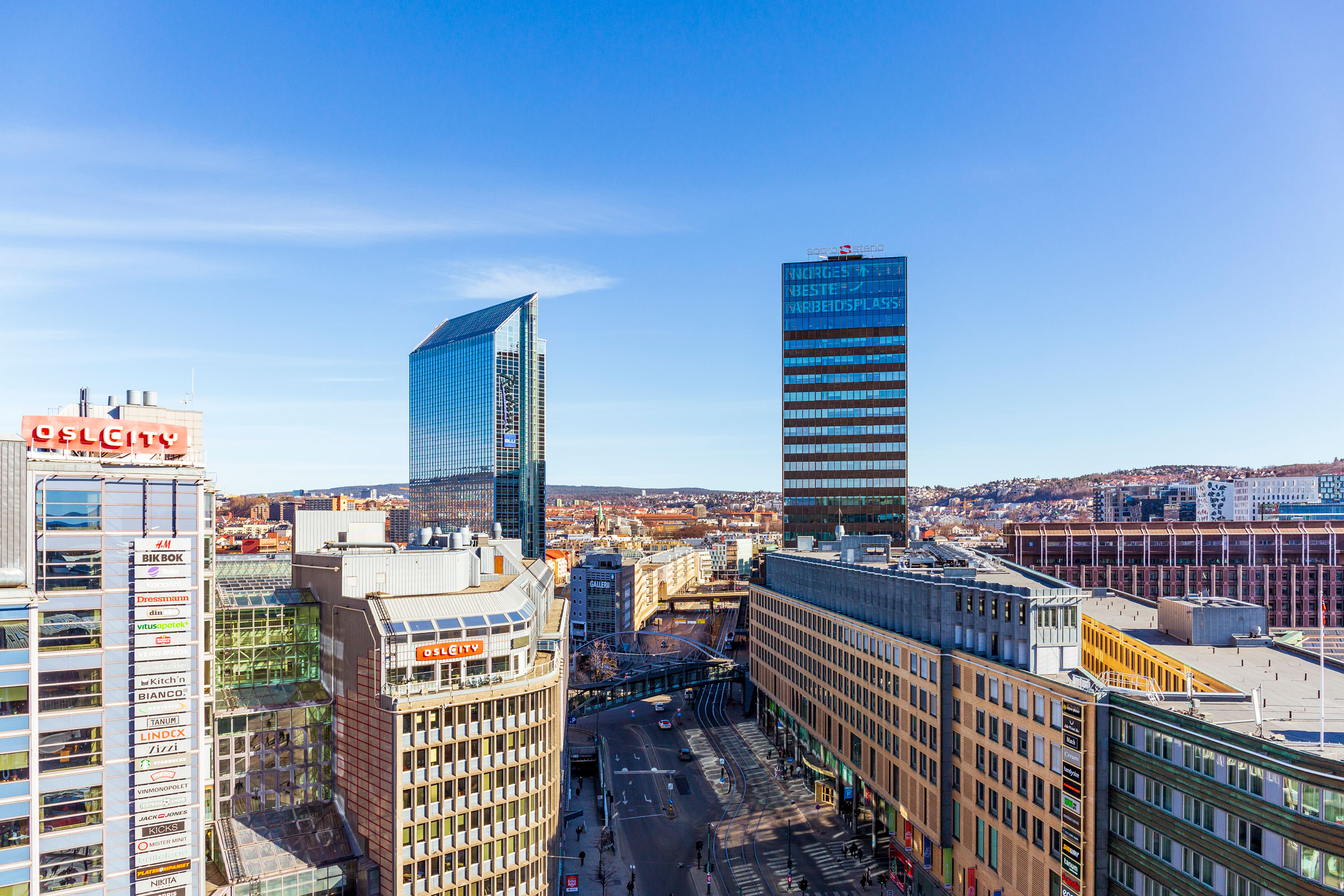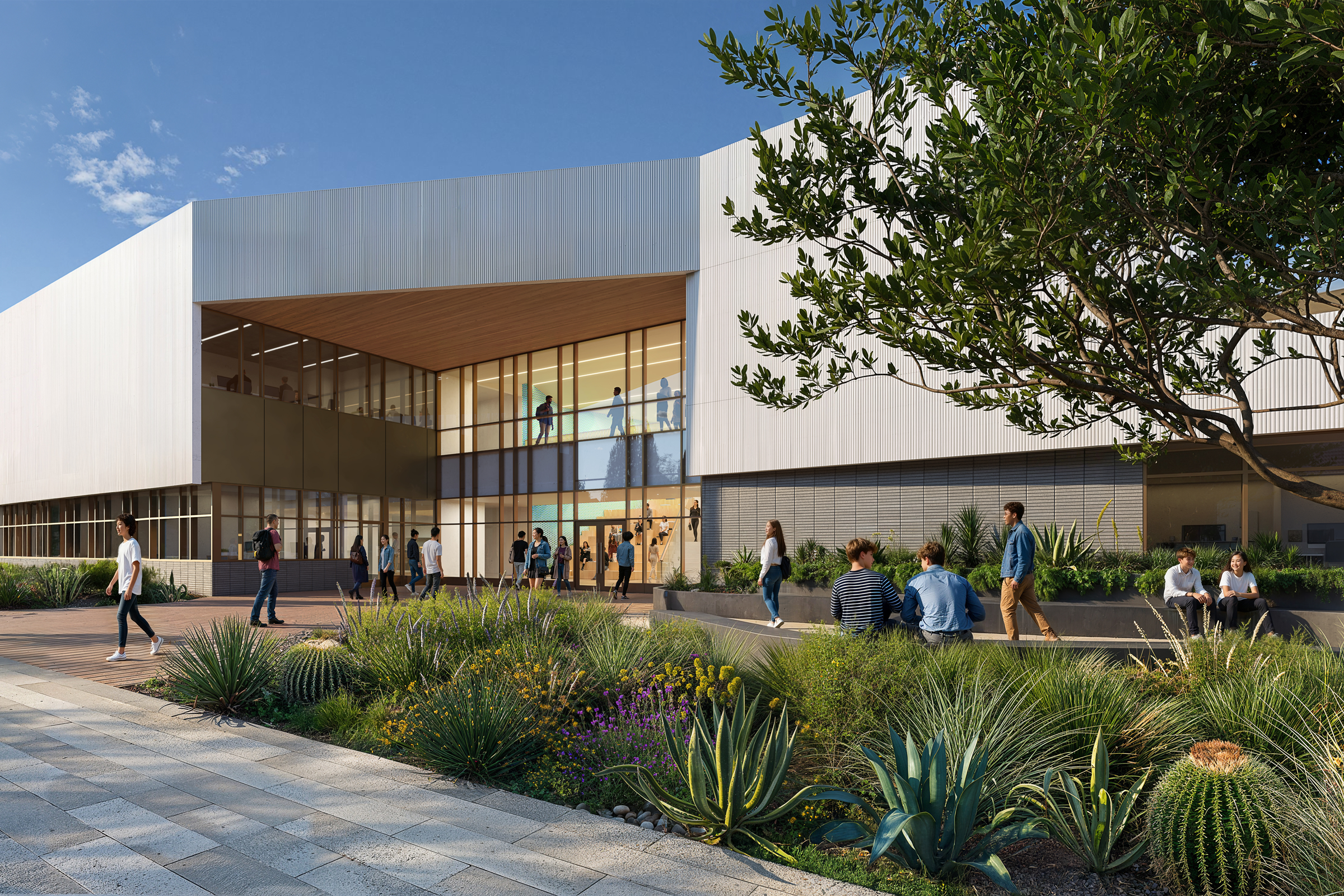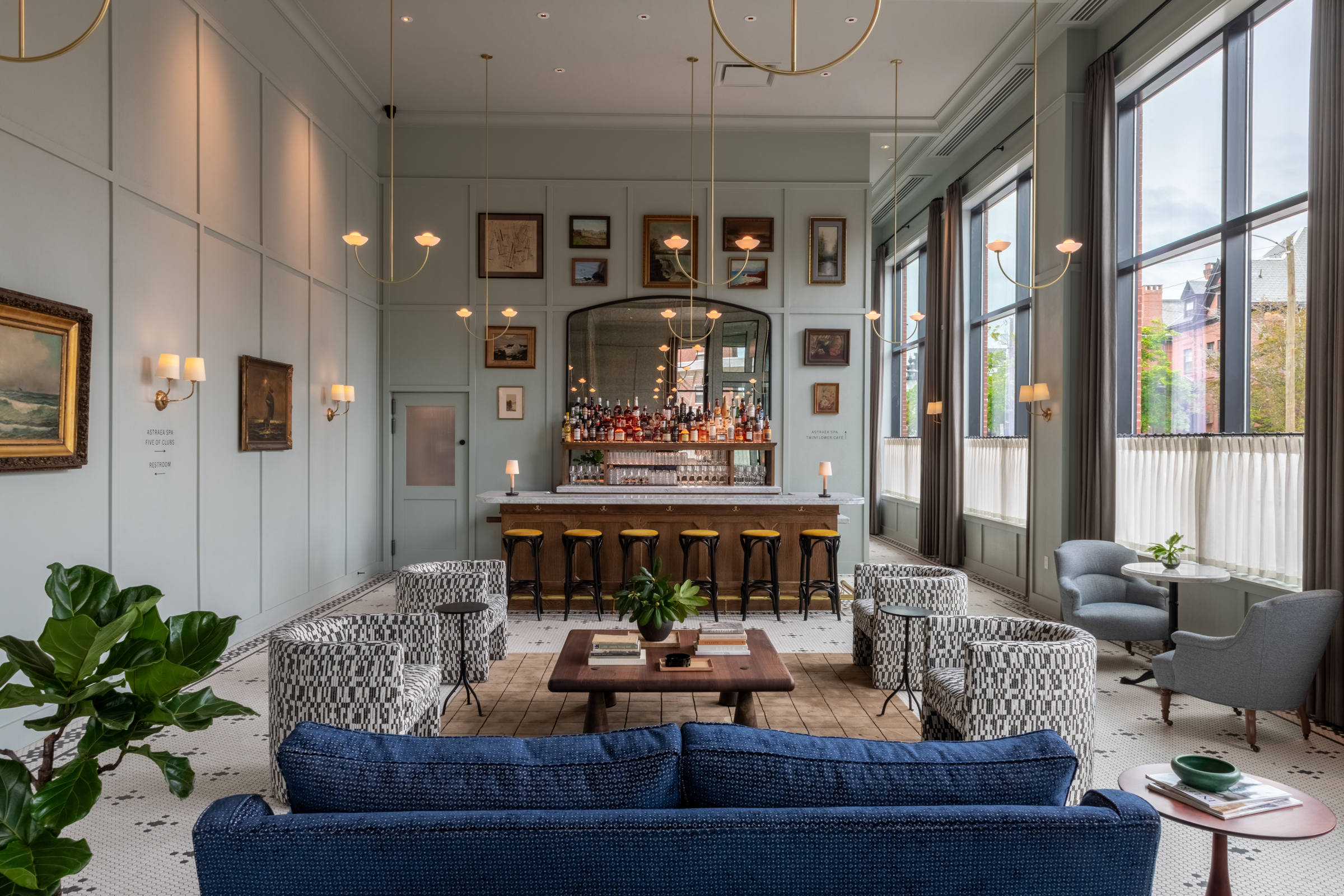Story at a glance:
- Norway’s small size, robust digital infrastructure, plentiful data, and enthusiasm makes it a great place for new business.
- International investors may be looking at Nordic startups more than ever before.
- New companies like Modulize, Varig, and others are recruiting globally.
Coworking spaces, startup accelerators, maker spaces—today’s offices are more collaborative and creative than perhaps ever before. Once known by many for its oil and fishing industries, Norway is reinventing itself with innovation and a bustling startup culture. The excitement was clear on a recent quick tour of the Mesh Community coworking space in the heart of Oslo.
“The big shift now is that international investors are really looking at Nordic startups,” says Håkon Kalbakk, cofounder of Modulize, a building solution for offsite construction that started in November 2020. “The technology is great, and valuations are much lower than in the US, Israel, and even a lot of Europe like Berlin, London, Stockholm. It’s radically different than five years ago. There’s much more money, and investors are looking for great teams.”
Kalbakk calls himself a serial entrepreneur, having started his first company after business school in 2007. Modulize, based out of the Mesh space, is his fourth tech startup based in Norway with a global focus.
The city of roughly 700,000 has a lively startup ecosystem, with more than 50 startup accelerators, incubators, and clusters, according to the Oslo Business Region. In 2019 you could find 2,200 startups in Oslo—50% more than 10 years ago. “In 2022 there are even more startups,” says Siw Andersen, CEO of Oslo Business Region. “Oslo has been the underdog of European startup cities for a while now, but we see a rapid shift in the volume of successful startups coming from Oslo. In 2021 the investments going into startups increased by 260% from the year before.”
Oslo now has six Unicorns—Kahoot! (an edtech platform widely used in the US), Gelato, Oda, Duune Analytics, Cognite, and Autostore, all of which came about in the last three years, Andersen says. Unicorn is the term used in the venture capital industry to describe a startup company with a value of more than $1 billion.
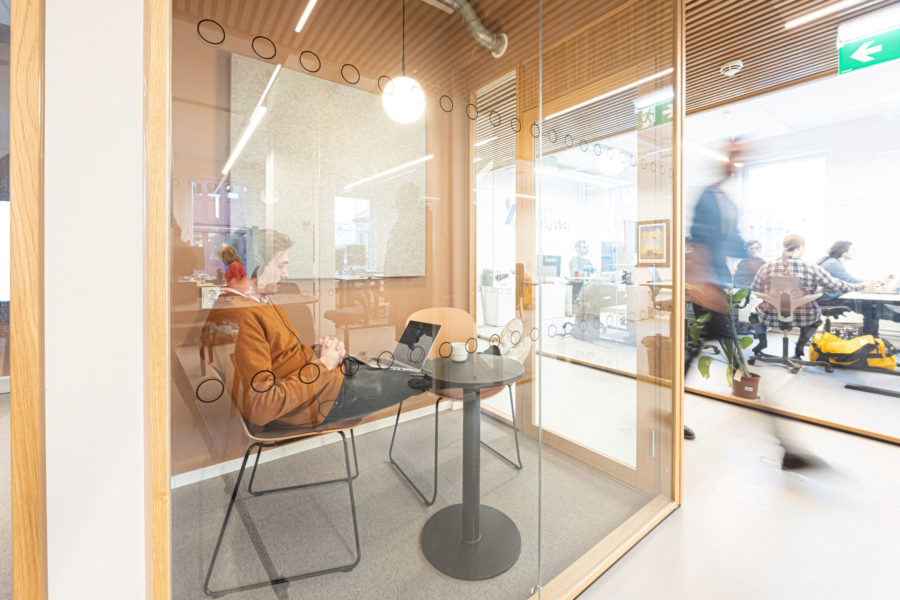
Mesh is a coworking community in Oslo that works to create the best startup HUBs. Photo courtesy of Mesh
Andersen says Oslo is a great place for startups because a lot of founders, investors, and incubators focus on impact. “Solving global challenges is the main business model for most of our startups and the support system around them. We know we need to move much faster if Oslo is going to be emission-free by 2030 as declared in the municipality’s Climate Budget and Norway’s green transit. Here startups will play an important role.” She says most investors are seeing that impact is the only way ahead, and many available funds in Norway are only available if the business supports clean, green initiatives.
Oslo has been the underdog of European startup cities for a while now, but we see a rapid shift in the volume of successful startups coming from Oslo.
The design and architecture sectors are strong in Oslo, and there’s a genuine interest in a sustainable and circular economy. To meet the city’s emission-free goal, Andersen says construction companies have had to develop new solutions and products like all-electric excavators, all-electric mixer drums for concrete mixer trucks, and more. “By using its buying power, Oslo can escalate the green transition, and these products can then again be exported to accelerate a global change,” she says.
Starting Small
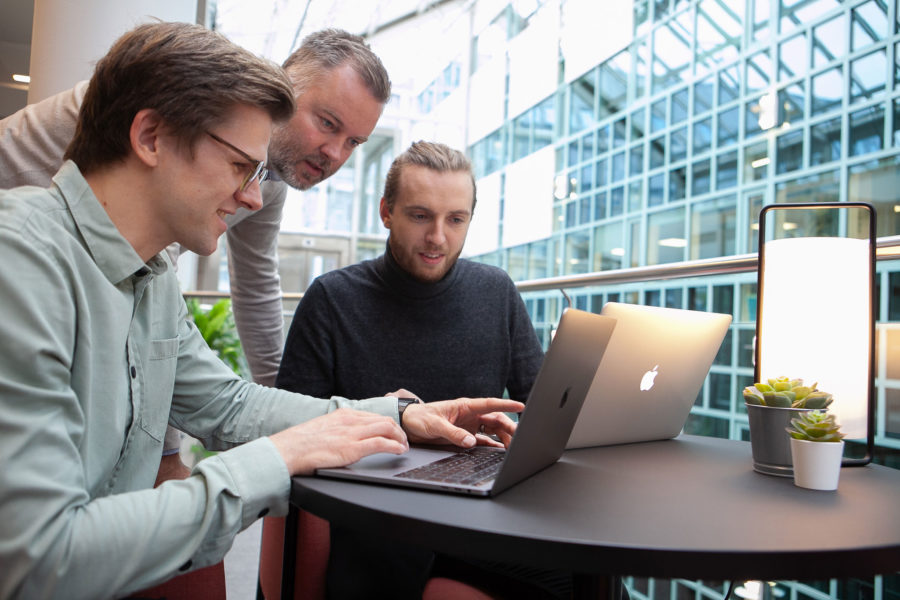
Modulize cofounders Lucas Carstens, Håkon Kalbakk, and Olav Ljosland. Photo courtesy of Modulize
Lucas Carstens, cofounder and CEO of Modulize, lived in London before making the move to Oslo to work. “Part of what’s great about Oslo is that it’s not that big,” he says. “You get a really nice balance. There is some culture, there are nice restaurants, there is a scene for whatever scene you want to have, but you don’t spend one-and-a-half hours commuting each way.”
Carstens says the city’s size makes it much easier to network as well as get access to relevant people—rather than being five steps removed from who you actually want to talk to. “I feel like Norway has turned into this test bed for a few application areas, and construction is one of them. EVs is another,” he says. “Maybe there’s a little bit more open data, there’s a little bit more collaboration, a little bit more willingness to try a few things.”
The country’s size allowed Modulize to quickly gain coverage to reach Norwegian manufacturers, and many already use their solution today. “If you want to know somebody in Norway we probably know them, whereas in the US that’s probably really different,” Carstens says. “That’s another potential benefit—we pick a small market, and we figure it out. Rather than trying to do everything all at once and have millions of potential customers and users, where you will always be this tiny fish in a big pond. Maybe in Norway we can be a medium size fish in a smaller pond more quickly.”
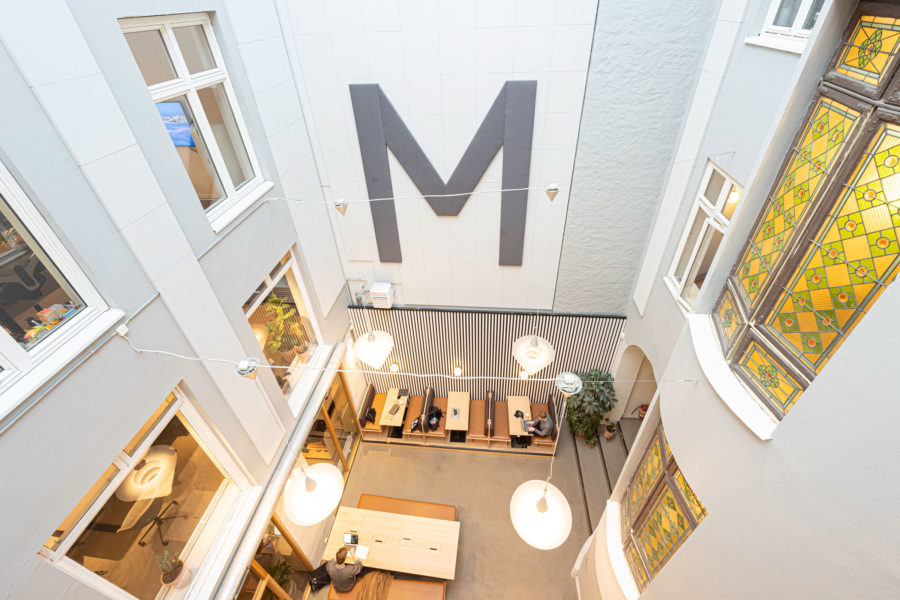
Inside Mesh. Photo courtesy of Mesh
What could be viewed by some as a disadvantage—not having a large client base of a particular type—can also be an advantage, according to Renate Straume, CEO and founder of Varig, a sustainability software company for commercial real estate that started three years ago. Varig also works out of the Mesh coworking space.
“In the US you could build a product just for office buildings larger than 40 square meters. You really don’t have that in Norway,” she says. “Your client base, even though you can be fairly specific, is going to be fairly diverse. That means that when we have something that works, something that’s ready to scale, it’s a very mature product compared to a lot of other marketplaces where you just don’t get to that place without having a fully fledged product that a lot of stakeholders and types of clients have tested and found worth paying for.”
Andersen says testing a product or service in a smaller place first can certainly be an advantage for some startups, but it’s not the only advantage. “In health care we have very good testing facilities because of the good public-private collaboration—between companies, hospitals, and R&D—and because the Norwegian health care system is very much digitally advanced. In other areas like mobility, Norway has long been a leader in electric mobility. Half of the cars sold in Norway are electric. My point is that mobility startups can test their solutions easily in Norway not only because of regulations but also because of our closeness to wild nature. If your product works under Norwegian conditions in the Norwegian weather, it will work anywhere.”
Collaboration is Key

Renate Straume, founder of Varig. Photo by Oda Hveem
Sharing knowledge and experience is part of the coworking experience, too. “Even if we’re competitors we try to make each other good because everyone wins if we move forward,” Straume says. She says having the shared space has also been convenient for bumping into like-minded people and continuing to network.
Carstens agrees. “They do have events here, and then for us it’s first and foremost the ability to recruit and retain talented people. When you’re a small company, you can’t provide cool office space and a nice restaurant with an Italian chef.”
Kalbakk says its central location also helps, as it’s easy for talented young people to reach. “That’s the first priority, and the second priority is networking,” he says.
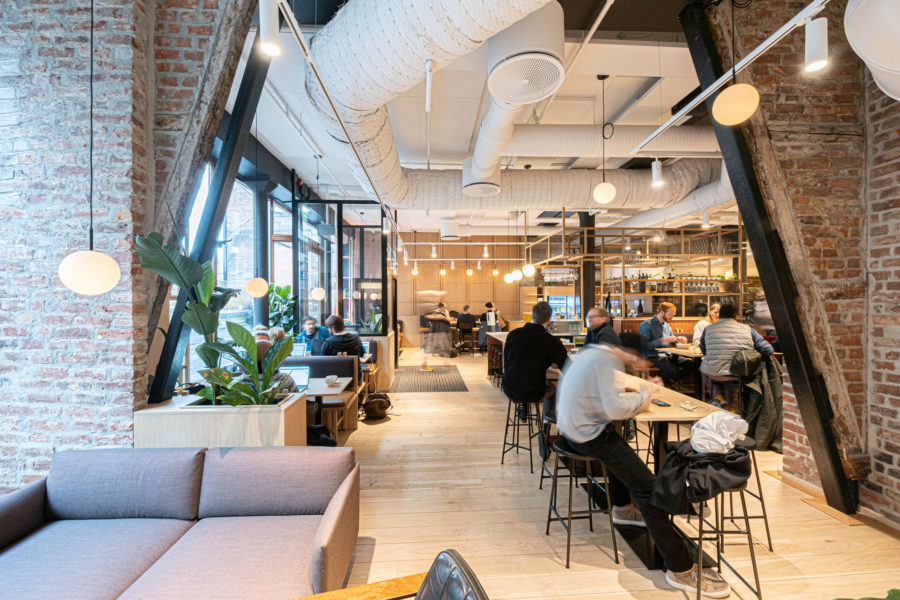
Inside Mesh. Photo courtesy of Mesh
Straume says that’s part of the reason why Varig decided not to have their own office. Instead they share space with another startup that has some of the same owners as Varig.
Both Varig and Modulize, like many other startups they know, are actively recruiting globally. Modulize now has employees from across 10 nationalities. “We convince them to move to Oslo from India, from Brazil,” Carstens says.
More Benefits
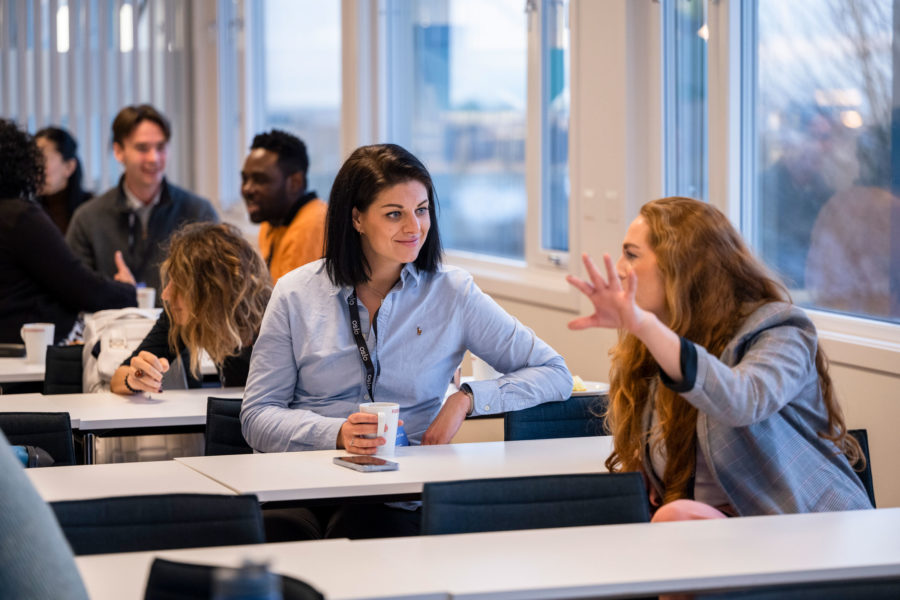
Oslo Startup Day. Photo courtesy of Oslo Business Region
Straume says she thinks Norway’s startup culture is also thriving because of its digital infrastructure and access to data. For example, they have things like Elhub, a central IT system that supports and streamlines market processes like electricity sales. “All the electricity data from every electric meter in the entire country is collected in one central hub you can build an API to and, as long as the person who owns the electricity meter says, ‘Yes, this company can have access to my data,’ you can have access to any electricity meter in any building in Norway,” Straume says. “It digitizes and streamlines things in a very predictable way. You end up with good systems that aren’t going away.”
Of course, Norway’s welfare system is another benefit. “Norwegians can take a risk of starting a company and still have a system that will catch them if they fail,” Andersen says. The country’s stable economy, highly educated population, and innovative business culture also make it a great place for startups, she says.
So what does the future hold? Andersen hopes it will include looking at urban development, architecture, design, and construction more holistically. “One of the topics at this year’s Oslo Architecture Triennale is neighborhoods, which describes an important part of the future of buildings that has really not been addressed. What about the spaces between all the buildings? And who takes responsibility for facilitating the zones in between?”

